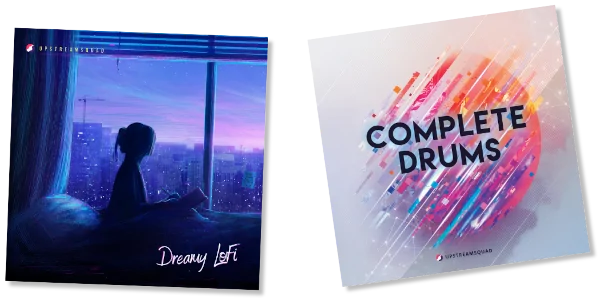The tropical melodies, playful drums, and sweet vocals of House and Electronica producer Embody, capture the feeling and emotion of spring perfectly. This Armada Deep and Mr. Suicide Sheep releasing producer is sure to be on repeat with just a quick listen to his music. We got a chance to sit down with this talented artist and ask him what goes into the melody creating process, mixing his tracks, creating arrangements, his big plans for the future and much more!
SoundShock: What made you want to start making music and get into production?
I think it was quite natural. Both my parents are musicians, so music was around me as long as I remember. My mom signed me up for music school since I was 6 or 7 years old. I remember hating it, as other kids would go and play outside while I was at home learning piano. But I’m so grateful to her now that she did not let me quit.
My first encounter with music production was in school. A friend showed me this primitive DAW that you could make your own sounds with. It was like magic. Before that I though that you have to be in a band to actually make music. It turned out that you can do it all by yourself. You only need acomputer and ideas (and Youtube, to learn how to convert those ideas into pleasant sounds).
How did you come up with your artist name?
There’s this one song that I used to love so much. It’s called SebAstian – Embody. So I just took the name from it. I wanted something short and easy. As my real name would be hard to pronounce and to remember.
Catchy melodies are a recurring theme in your tracks. How do you go about writing your melodies and make sure they fit with all the other elements in your track?
Usually I start everything with the piano only. It’s quite a default sound, so it’s easy to hear how melodies are interacting with each other, with chords etc. When I feel that I have catchy enough progression with lead melody and additional elements, I start converting everything into different sounds. I think writing melodies is quite similar to mixing. Everything has to have it’s own space.
I always try to break chords apart and spread the notes across different instruments. It might be much more powerful if you use, for example, lowest note from the chord for the bass, middle note for some synth and high note for another instrument etc. It also allows more space for the sounds to breathe. And mixing is much easier when you haven’t got 257 tracks of synth chords stacked on top of each other. Less is more, that’s what I’m trying to remind myself all the time.
When arranging your song it can be difficult to keep listeners interested from start to finish. What are some ways you can keep the listener engaged in the arrangement and have it flow smoothly throughout the entire track?
It actually is really difficult. People are impatient these days, especially with pop music. I actually love short tracks myself. I try to treat my arrangements as it would be a radio edit. To keep listeners interested you have to introduce constant change to your arrangement. I love when sounds move around. Sometimes I use automation for some of the sounds, so they would feel less static and more organic throughout the whole song. I try to add or take out some elements usually every two or four bars (depending on the tempo of the song). It might be some tiny percussive sound, but it makes a huge difference when you break the repetitiveness. Repetition is really good, but you have to be really smart with it.
For me, simplicity is key. It’s all about what feels right. Also another important thing is the surprise element. I love when you listen to a track and some crazy unexpected melody or instrument comes in and you’re like ‘What the sh**, where did that come from?!?’ Then you keep rewinding or keep waiting for that element to reappear in the song.
Electronic producers have a hard time with music theory. Either they don’t know what to learn or how to apply the theory. If you use theory when writing your tracks, what specific parts do you use and what topics do you feel producers should know?
It’s good to know music theory, but I think it’s not crucial anymore. Knowing how to play keys helps, but at the same time it’s so easy to program notes with a mouse in a DAW these days. I’m not using any theory while writing music. The only thing I’m thinking is does it feel good.
Although there are some elements like guitars, strings or wind instruments that are a bit more complicated to program. But you can always find some talented musicians to work with. I think another important thing is to learn how to work with other people, how to collaborate. It’s one of the most powerful tools that anyone can have.
Also, the lines are very blurry between writer/producer/mixing/mastering engineer now. If you can learn at least the basics of all these, you already have a huge advantage. Being able to mix my own tracks saved me so much time. In the end there’s no right or wrong way. It’s just a process though trial and error. You have to put that hard work in it.
Is there a technique or two that you consistently use when producing tracks? If so, what are they?
I always use master channel plug-ins from the beginning. And I always do mixing while writing music. It can be challenging with the latency sometimes, as I use quite a few plug-ins on the master channel, but I’ve got my ways around that.
Producers seem to struggle a lot with the stereo imaging of their tracks. Often times, their track will be too wide, not be wide enough, or have elements all over the place which make it hard for the listener to understand. How do you decide which elements go where and make sure your elements are giving enough interest to the listener without being distracting?
Stereo imaging is really tricky. I love huge, wide mixes, but you have to be careful. It’s easy to get carried away with widening stuff. I always check how the mix sounds in mono. It’s a bit of an old-school approach, but it helps to hear which stereo elements are disappearing while listening in mono. If you get it right, the mix will be tight in both stereo and mono modes.
Usually I would keep all the low end as much in the middle as possible, that helps to keep things in control.
I try to visualize my mixes as a bookcase with square shelves. Each element has to have it’s own space. EQ is one of the most powerful tools, people tend to underestimate it.
All your tracks seem to tell a unique story. What are some ways you go about creating a specific story and vibe and how do you arrange out these ideas into a whole song?
Usually I would have a session together with a songwriter and a vocalist. We would sit and discuss what would be the theme of the song and what we would like to tell through the song. For me lyrics are one of the most important elements in the song.
Sometimes I would have specific vibe in mind music wise and we would start from there. It’s really important to get the overall vibe right. Making sure that the mood, chord progressions, melodies, lyrics, even sounds and instruments interact very closely with each other. I love when music takes you to places, creates emotion.
“I love huge, wide mixes, but you have to be careful. It’s easy to get carried away with widening stuff. I always check how the mix sounds in mono.”Embody
Almost all your tracks contain vocals. Do you have any specific vocal processing techniques that you use?
Usually I record all the vocals through Shure SM7B mic which goes into LA610 preamp which goes into Distressor. I have basic plug-ins that I use on my vocal channel all the time – autotune, a couple eqs, de-esser, a few more compressors, reverb, delay and multi-band compressor to round everything up nicely.
I like smooth sounding vocals mixing wise. So I try to control dynamics and frequencies as much as possible without losing the emotional part of the performance. Lately I’ve started mixing vocals separately from the main project. As I would get 60-150 tracks for vocals only. So it gets messy if everything is in one project.
It is common for many producers to start a track, get part of it finished and then lose interest in it and never finish it. How do you keep the creative flow going throughout the whole track so you don’t get bored and uninterested in the track and ultimately throw the project in the trash?
I like to work really fast. If I’m stuck on the track for more than 3-4 days, I would leave it and go work on something else. I hate being stuck on something. You start questioning things that don’t need to be questioned. Whenever I start thinking while producing, I get stuck. It’s best to go with the flow, with you gut feeling. I noticed that the more crazy things I try to do, the happier I am with the final result.
Also, sometimes you just have to re-write things. It’s a really hard decision to make, especially if you worked on something for a few weeks. But you can always go back to the previous version. Just don’t forget to ‘Save As’. I’ve had 120 versions for one track before I got it how I wanted once. I’m a big believer that hard work pays off. You just have to be patient.
Mastering can seem like a dark art to many. Do you have any tips for getting the modern mastered sound, assuming that your mix down is already well balanced.
Yes, it’s a mystery to many, but it’s not only mastering that matters. It’s important to learn all the steps towards mastering too. I like huge sounding mixes. The louder the better. I would say watch as many Youtube tutorials as possible to learn what’s it all about and then try using it in practice. Listen to loads of references and analyze them. Learn to read spectrum, phase analyzers, etc. Again, it’s just a process through trial and error.
With the massive amount of music that is out there right now it can be difficult to get your music heard. Any tips for producers looking to get their music out there and stand out from the crowd?
It’s kind of cliché, but try being as original as possible. Try being the best in what you do. Don’t think about marketing your music unless you have something really good to show to people. Don’t stress about putting out every track you make, choose only the best ones. If it’s good enough, people will start noticing you. 95% of music I make will never be released or heard by anyone. You have to make those thousand songs to get that one great tune. Take your time, be patient and work hard.
What’s next for Embody? Any big shows coming up or releases coming up?
A lot of exciting things coming up. I’ve got a few festivals to play this summer. Obviously writing a lot of new music. It’s been a while since I’ve released some original material. So I’ve got a whole summer of releases planned. The first single is coming out on 18th of May with an amazing Canadian singer. It’s gonna be a fresh sound for me and I hope people will love it as much as I do. Really excited to finally release all this new music that I’ve been working on recently.





